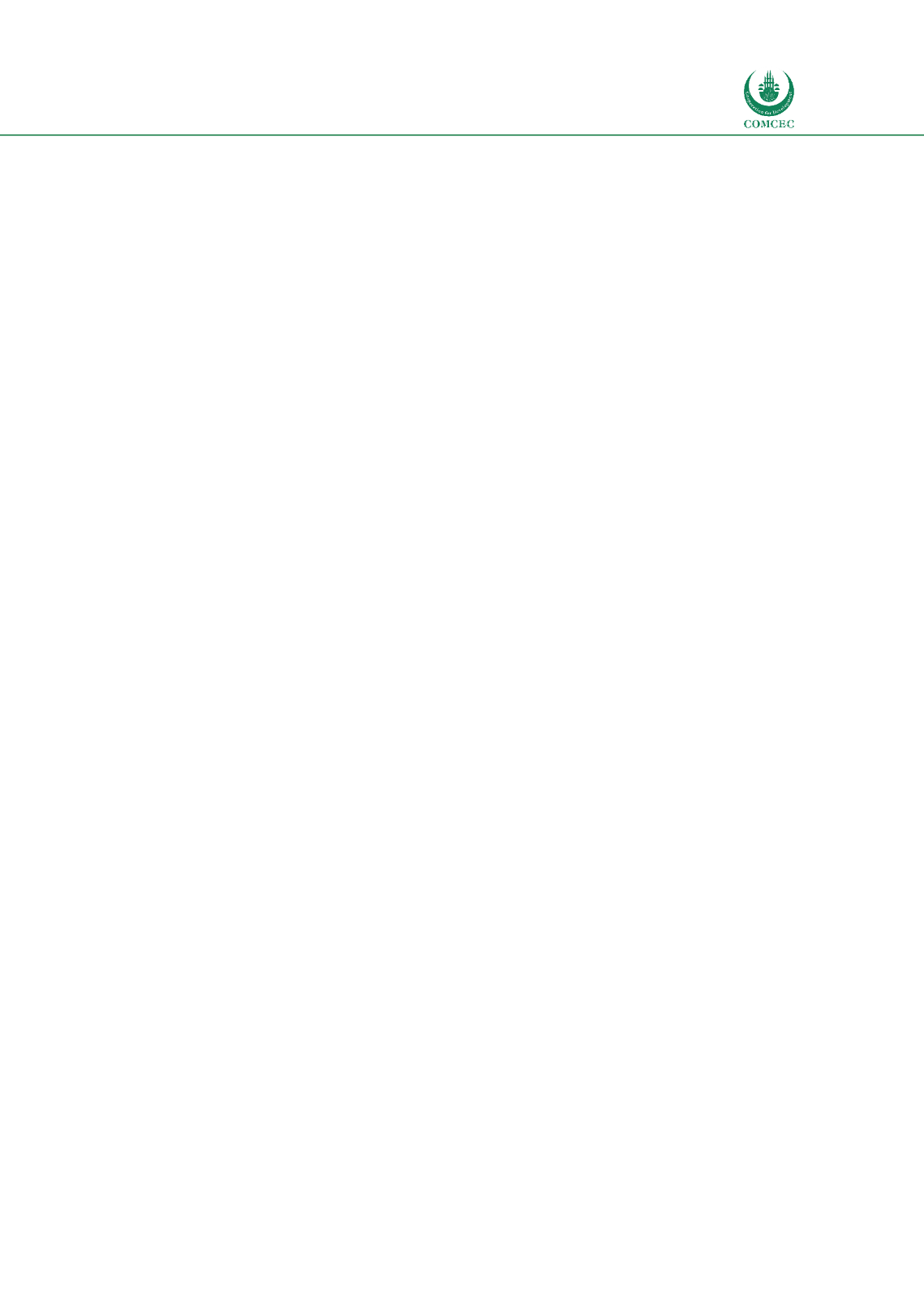

Enhancing Public Availability of Customs Information
In the Islamic Countries
79
Administrative and Consultative Processes to Support Information Availability
Institutional and Administrative Arrangements
The main administrative body responsible for trade policy in Morocco is the Ministry of External
Trade (MCE). It prepares draft laws on trade, in consultation with other relevant ministries,
which are then presented to Parliament for approval (WTO Trade Policy Review). It is also
responsible for negotiating trade agreements. A number of other ministries are also relevant to
the trading process, particularly those relating to taxation, and also the Central Bank in terms of
rules relating to foreign exchange. Indeed, foreign exchange access can be a major issue for
Moroccan traders.
The WTO’s most recent Trade Policy Review of Morocco notes that a large number of trade-
related laws have been changed since 2008, and in particular since passage of the new
constitution in 2011. Unlike many other countries, Moroccan law specifies that international
agreements, including trade agreements, take precedence over domestic law. As a result, the
FTA with the USA, referred to above, plays a particularly important role in relation to
transparency. It specifies that all draft laws, decrees, orders, and administrative decisions
relating to trade, government procurement, investment, e-commerce, intellectual property, the
environment, and labor matters, must be published on the website of the General Secretariat of
the Government and left open for public comment for a period of at least 15 days. This
transparency obligation is the cornerstone of Morocco’s approach to transparency in trade and
Customs matters, and has had an impact far beyond the country’s dealings with the United
States. It is a good example of a preferential agreement leading to a policy change that in fact
affects all trading partners, and so is a de facto most favored nation measure.
Consultative Process
The consultative process relating to trade laws and regulations has two aspects in Morocco. The
first is the governmental transparency side of the equation, which can be traced back to the FTA
with the United States. As noted above, there is a compulsory comment period for new or
amended regulations or rules. This period allows interested parties from the trade community
to submit their views to the government prior to entry into force of the new rule.
But a second aspect is arguably more important. PortNet is a collaborative effort between the
public and private sectors. Given its legal and commercial structure, there is a permanent
process of consultation with stakeholders within PortNet. While PortNet does not have the
authority to promulgate laws or regulations, it does play an important role in terms of
centralizing and streamlining procedures. As such, it provides a forum in which the entire trade
community, including public and private sector actors, can exchange views on processes for
importation and exportation. This kind of information exchange is vital to the improvement of
systems over time, and the identification of new and better business processes. PortNet is
resolutely a bottom up initiative, in the sense that its movement forward is driven by users from
below, not by government from above.
Prior Notification of Changes in Procedures or Release of New Regulations
As previously noted, the US FTA brought about a substantial change to Morocco’s practice in
terms of prior notification of regulatory changes. In a host of trade-related areas, the Agreement
requires prior publication and a comment period for new or amended regulations and rules.
This practice has spread beyond issues affecting just US trading partners to be an approach that
















